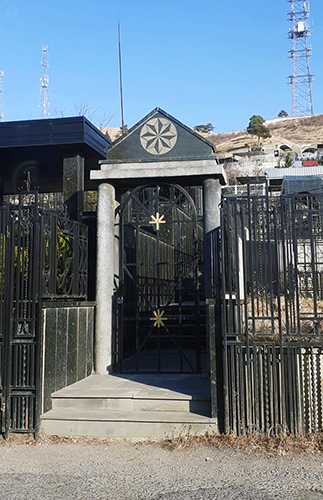Anthropology of Crime
and Criminalisation
European Association of Social Anthropologists (EASA) network


March 30, 2022, 2-5.30 PM CET (3-6.30 PM EET)
Given the ongoing war in Ukraine, and the crisis unfolding in the region and beyond, this workshop wants to be in the first place a platform for discussion and reflection on how our knowledge and experience could help understand current events and future challenges, as citizens and as academics.
Literature on the Soviet Gulag has an established tradition in academia and beyond (Barnes 2011, Hardy 2016, Klevniuk 2004, Solzhenitsyn 1973, Shalamov 1978). Research on prison systems in communist successor countries has also developed steadily (Pallot 2005, Piacentini & Katz 2017, Piacentini & Slade 2015, Moran, Piacentini & Pallot 2012). In this framework of crime and punishment, research on criminal (sub)cultures has mainly focused on informal hierarchies and governance inside the prison, as well as on the influence of social, cultural and moral norms of the criminal world on society ‘outside’ (Varese 1998, Slade & Azbel 2020, Kekoshvili & Slade 2020, Zakharova 2017, Curro 2017, Ferry 2021, Cowley, Ryan & Dunn 2015). Bringing different disciplinary, historical and geographical perspectives in conversation with one another, this workshop aims to provide a space to share empirical findings, epistemological and methodological approaches, theoretical insights, personal experiences and future plans in research on crime and criminals as cultural and social phenomena. Contributions from anthropology, sociology, history and criminology will touch upon a number of interrelated questions: What is ‘specifically Soviet’ – or ‘post-Soviet’ – in criminal cultures and criminal figures populating prisons and streets of Georgia, Russia, Kyrgyzstan, Moldova, or migration settings? How have these cultures and figures transformed at different stages of Soviet history, with the transition to capitalism at the beginning of the 1990s, and in the three decades after the fall of the Soviet Union? What have been political and legal authorities’ approaches towards the criminal world and its cultural manifestations in different historical, socio-political and geographical settings? And how has the criminal world responded to these approaches?
The workshop will also focus on the connections between prison, criminal cultures and society. Contributions will discuss the ways in which different people and groups – youth, women, middle classes, intelligentsia, the poor – perceive the criminal world; the moral and affective underpinnings of criminal cultures; the interaction between the criminal world’s social and cultural norms and ethnicity, citizenship, religion, class, political orientation. Issues of comparability, terminology and research ethics will be addressed too.
(please check your timezone by clicking on the time)
2-2.10: Welcome and introduction:
Costanza Curro (University of Helsinki, Finland) and Davide Casciano (AnthroCrime EASA Network, University of Bologna, Italy)
2.10-3.10: Keynote by Federico Varese, University of Oxford, UK:
How war affects crime: Reflections on history and the present of the vory v zakone
3.10-4.20: Session 1 – Crime, criminals and punishment inside and outside prison: Perspectives from sociology, criminology and history
Gavin Slade, Nazarbayev University, Kazakhstan:
Rustam Urinboyev, Lund University, Sweden:
Rhiannon Dowling, CUNY, US:
4.20-5.30: Session 2 – Ethics and aesthetics of criminal cultures
Vakhtang Kekoshvili, Georgian American University, Georgia:
Maroussia Ferry, IHEID-CCDP, Switzerland:
Svetlana Stephenson, London Metropolitan University, UK:
Discussants:
Costanza Curro, Judith Pallot (University of Helsinki)